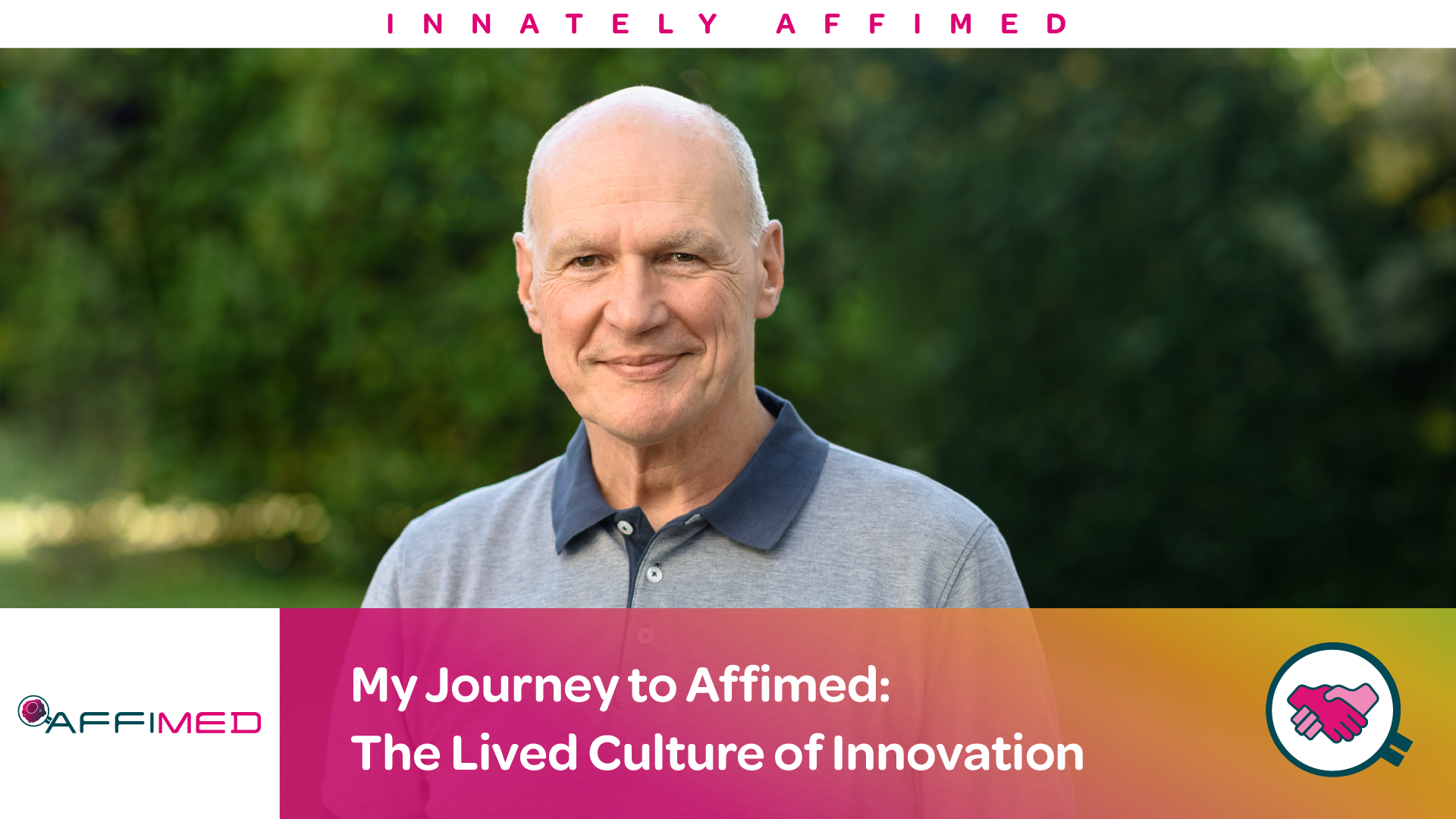
by Andreas Harstrick, CMO of Affimed
We’re living in a time of rapid change, particularly in respect to battling cancer. In recent years, we have seen developments giving new hope and new options for millions of patients and their loved ones.
Technological advancements in the development of oncology therapies have moved at especially fast speeds, particularly in the last few decades.
Combine these advancements with persistently high unmet needs and a large patient population. The net result is that oncology is the world’s largest pharmaceutical therapeutic area and, as you might expect, highly competitive.
Many professionals continue to flock to this field with the desire to move the needle forward on treatment and make a measurable impact that they couldn’t aspire to elsewhere. But if you work in oncology or want to work in oncology development, how do you identify the right company? How can you find the right fit for your background and talents? And how can you pinpoint a company aligned with your mission and passion for helping cancer patients but also where you can contribute, learn and grow.
I have been fortunate enough to find all of these characteristics in spades right here at Affirmed. My work here has represented the culmination of my 3 decades in the oncology space. Each day my talented colleagues push me to identify new pathways for delivering innovation to patients.
It took me a bit of a winding path to get here. I have had the unique opportunity to work at 3 different oncology pharma and biotech companies of very different approaches throughout my career. They all reflected a wide range of cultures and attitudes, even if they were united in a common mission and were closely connected in some ways. The cultural differences alone were vast – I have worked at big companies, small businesses, start-ups, and enterprises headquartered outside of the United States. I got a crash course in learning how to adapt to change and unexpected circumstances; in oncology, there are so many unexpected things that come up in the development process that changing your plans happens a lot. You have to learn to not be too rigid in clinging to ideas or plans that are no longer relevant in light of new information.
Over time I saw that the most resilient companies were the ones that were able to learn from experience and correct mistakes, unafraid to take risks. They didn’t throw in the towel and give up with the first failure or unexpected results; instead, they set out to understand it and extract the learnings.
There’s no silver bullet or secret sauce to building a high-performing organization, but in time, I identified a few key qualities that I wanted to see in any company I considered joining.
I found these qualities at Affimed thanks to the leadership team. In my experience, the buck ultimately stops with management on driving culture and making progress possible.
As I look back on my career, I feel like I just got started. And yet I’m increasingly asked for advice from those just beginning their careers in oncology. While no two pathways are ever the same, I would say that the single most important thing is for people to reflect on their own strengths and weaknesses and try to understand their motivations and preferences. If you are uncomfortable making decisions that require risk taking, maybe seeking out opportunities at bigger companies would be a better fit. Or if you prefer not to put all your eggs in one basket – working with a company with a broader pipeline gives you options.
I think back to my first days at Affimed. I was excited about the brand of focused leadership I saw on the pioneering work underway here in NK cells (at a time when many others were more focused on T cells). It was exciting to be part of an organization that was the very first to try so many things – which, of course, posed its own pipeline challenges for development precisely due to the number of “firsts” we were driving in terms of innovation.
But we were built to withstand and grow stronger from those challenges. It was clear that I had arrived at an organization who has been through hard times and difficult failures but maintained the capacity to learn from those experiences and stay the course. On every project, I always felt the culture of working together and respecting people and respecting different opinions.
I’m just as optimistic today as the day I began at Affimed. We have all the necessary building blocks, and we are starting to see how powerful NK cells will be in the fight against cancer. It is exciting to be part of the creation of something – and to help scale it, grow it, and bring it to the next level.